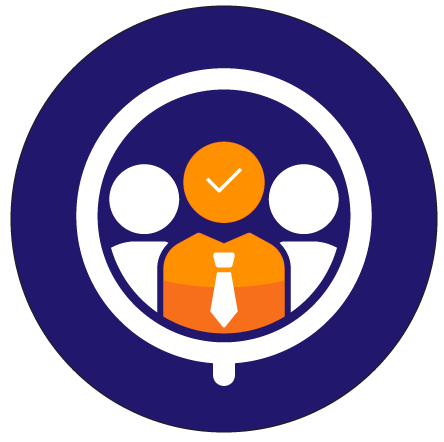Anúncios
In an age where continual learning has become essential, the prospect of upskilling on a budget can feel overwhelming. However, a wealth of free and low-cost resources exists, making skill development accessible to everyone. By leveraging these tools, individuals can enhance their marketability in today’s competitive job landscape.
Whether you’re seeking to improve your tech skills, business acumen, or creative talents, the options available cater to a broad spectrum of interests and needs. Understanding how to navigate these resources is crucial for making the most of your professional development journey. Here, we will explore various platforms and techniques to upskill without breaking the bank.
From online courses to community workshops and mobile apps, there are various avenues to explore. This article will guide you through the best free and low-cost learning resources available to those in the UK, ensuring effective use of your time and money.
Online Courses: Quality Learning at Your Fingertips
Online courses have revolutionized education, making high-quality learning accessible to everyone. Several platforms offer free or low-cost courses, enabling learners to acquire new skills conveniently. Popular sites like Coursera, edX, and FutureLearn are some options worth exploring.
Coursera partners with renowned universities to offer courses across various fields. Many courses are accessible for free, but certification requires payment. This flexibility allows individuals to learn at their own pace without financial strain.
EdX is another excellent resource, offering a wide array of university-level courses. Users can audit classes at no cost and only pay if they want a verified certificate. This model allows learners to gain in-demand knowledge economically.
FutureLearn, based in the UK, is known for its diverse course offerings, from health sciences to arts. With the option to access courses for free for a limited period, users can explore multiple subjects without financial commitment.
Utilizing these platforms provides flexibility in learning and exposes individuals to high-quality educational material. This approach, combined with commitment, can lead to significant skill acquisition over time.
Utilizing YouTube for Learning Opportunities
YouTube has evolved into a vast repository of educational content. Many creators focus on teaching specific skills or subjects that attract learners of all ages. Thus, it has become a staple in the upskilling toolkit.
Channels dedicated to professional development, such as Crash Course, TED-Ed, and Skillshare, offer free lessons in various disciplines. Their engaging presentation style helps make complex topics more comprehensible.
Additionally, YouTube offers easy access to tutorials, from coding and graphic design to cooking and DIY projects. This variety ensures that almost anyone can find valuable insight tailored to their interests.
Furthermore, the platform regularly updates content, keeping information relevant and timely. The sheer volume of free resources available makes it essential for budget-conscious learners seeking to enhance their skills.
To make the most of YouTube, create playlists of educational content and dedicate specific times for learning. This structured approach fosters a consistent habit of skill development.
Open Educational Resources (OER) for Affordable Learning
Open Educational Resources comprise teaching materials accessible for free, including textbooks, course materials, and multimedia tools. These resources empower learners with quality content without the associated costs.
Sites such as OER Commons and OpenStax host a plethora of resources covering various subjects and educational levels. Users can find textbooks aligned with curricula, making them suitable for a wide range of learners.
The advantage of OER is not only cost-effectiveness but also adaptability. Many resources allow for modifications, catering to individual learning styles and requirements. This inclusivity enhances the educational experience significantly.
Moreover, educators can leverage OER to create customized learning experiences for their students. By integrating these materials into their teaching, they can promote better engagement and understanding.
When exploring OER, consider the variety of formats available, from videos to interactive modules. This versatility ensures that learners can engage with the material effectively, regardless of their preferred learning style.
Community Workshops and Local Learning Initiatives
Community workshops offer an excellent opportunity for hands-on learning without the cost typically associated with formal education. Local community centres, libraries, and non-profit organizations often host workshops on various topics.
These initiatives can cover everything from personal development to technical skills and creative arts. Typically aimed at fostering skill-sharing within the community, participants benefit from interactive and practical learning experiences.
Moreover, attending workshops provides networking opportunities and a chance to meet like-minded individuals. Building these connections can prove beneficial for future collaborations or career opportunities.
Many local councils also fund adult learning initiatives, providing courses at reduced or no fees. It’s worthwhile to stay updated on what’s available in your area by checking websites or community boards.
Look out for events by organizations like Meetup, where people can gather based on shared interests. This grassroots approach fosters learning in a supportive environment and enhances overall skill acquisition.
Mobile Apps: Learning on the Go
In the digital age, mobile applications have provided an innovative way to learn while on the move. Apps catering to various skills make education accessible anytime, anywhere. This flexibility is particularly beneficial for busy individuals.
Duolingo, for instance, offers language-learning opportunities through gamified lessons, making learning engaging and fun. The bite-sized lessons combine learning with daily practice, leading to significant progress over time.
Other options, such as Khan Academy and Udemy, allow users to engage with a diverse range of topics at their own pace. Many courses are free or offered at a low cost, appealing to budget-conscious learners.
Additionally, platforms like LinkedIn Learning provide mobile access to their extensive course library. Users can easily switch between the desktop and mobile versions, maintaining flexibility in their learning routines.
To maximize learning through apps, set specific daily or weekly goals. This approach ensures consistent engagement with learning material, helping reinforce newly acquired skills effectively.
Networking and Learning Communities
Joining networking groups and online communities centered around your area of interest can significantly enhance your learning journey. These platforms foster knowledge sharing and provide opportunities for peer mentorship.
Networking hubs such as LinkedIn Groups and Facebook Communities allow individuals to connect with others pursuing similar goals. These interactions can provide insights, resources, and support that are beneficial for skill growth.
Furthermore, attending meetups and conferences can expose individuals to industry trends, offering fresh perspectives on professional practices. These events often feature workshops led by experts, allowing for practical learning experiences.
In addition, participating in forums like Reddit or specialized Slack channels can help learners seek advice and share experiences. This collaborative approach enriches the learning environment and promotes community engagement.
To effectively leverage these networks, actively participate in discussions and share your skills. By contributing, you not only gain knowledge but also establish yourself as a valued member of the community.
Conclusion: Embracing Lifelong Learning on a Budget
Upskilling on a budget is not only possible; it’s increasingly practical with the numerous free and low-cost resources at your disposal. From online courses and community workshops to mobile apps and networking groups, the opportunities are vast.
By exploring these avenues, individuals can develop valuable skills without incurring significant expenses. The sharing economy and the plethora of digital resources have made learning more accessible than ever.
Adopt a proactive approach to your personal and professional growth. Set specific goals, stay motivated, and engage with available resources to ensure you make the most of your learning journey.
Ultimately, embracing lifelong learning will enrich your life, expand your horizons, and enhance your career prospects. So take the plunge and start your upskilling journey today!



